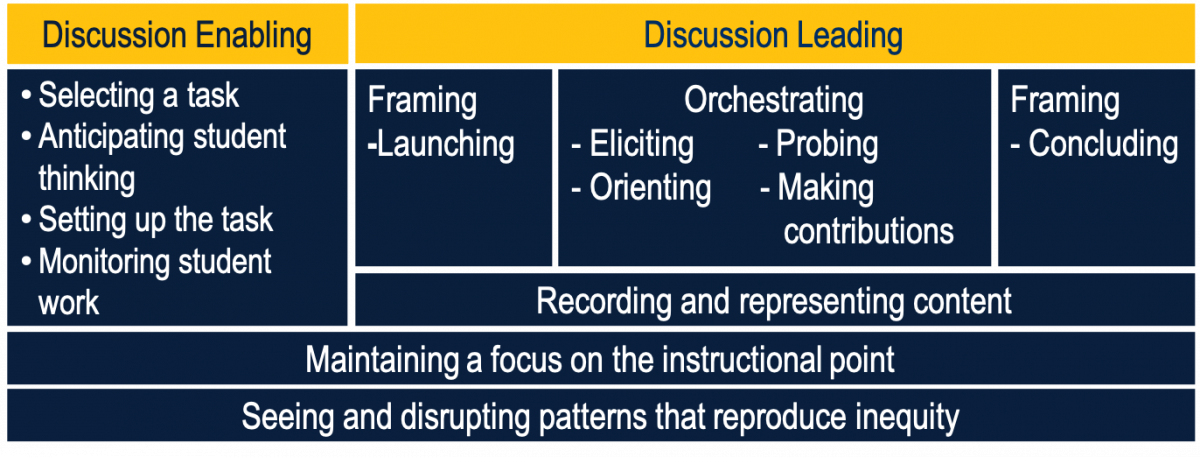What is leading a group discussion?
In a group discussion, the teacher and all of the students work on specific content together, using one another’s ideas as resources. The purposes of a discussion are to build collective knowledge and capability in relation to specific instructional goals and to allow students to practice listening, speaking, and interpreting, agreeing and disagreeing. The teacher and a wide range of students contribute orally, listen actively, and respond to and learn from others’ contributions. Teachers work to ensure students are positioned as competent among their peers, that patterns of interaction are respectful, and that the collective work of the group uses the strengths of and benefits each student.
How does leading a group discussion advance justice?
The free and fair exchange of ideas is foundational for democracy. This requires the ability to share, justify and defend one’s ideas and to listen attentively and thoughtfully to the ideas and perspectives of people different from oneself. In classrooms, students practice the skills of reasoned argument, debate, and collective knowledge-building toward common goals. Group discussions provide opportunities for students to make sense of complex ideas together and support one another to speak and listen in ways that advance the classroom community and common good. Group discussions also have the potential to reproduce patterns of inequity in classrooms, so teachers work to identify and disrupt these patterns in all areas of the discussion from selecting a task that will make space for a wide range of student strengths to concluding in a way that positions students as capable.
What are the elements of the practice?
The diagram below breaks down work that teachers do when they are leading a group discussion. This breakdown, or decomposition, helps teacher educators to break down the practice into a set of parts that can be observed and practiced.
